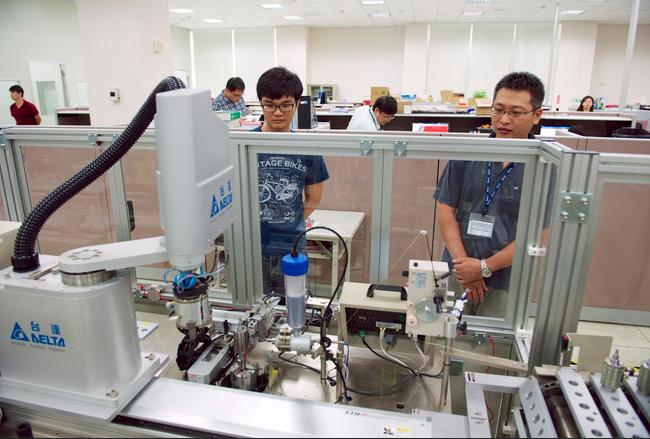Automation Alleviates China’s Growing Labor Shortage
Robots have been a hot topic for countries like the United States as they push themselves to be more competitive against inexpensive Chinese labor. But as their youth become less willing to accept jobs based on manual labor, China may soon take advantage of new automation tools in a major way.
 There is now a new group of industrial robots that are being developed to assist factories. They range from cheaper, low-end robots to high-tech machines that have the ability to see, touch, and even learn. China hopes that within the next five years these robots will not only fill a growing labor shortage, but will also transform Chinese factories for the better.
There is now a new group of industrial robots that are being developed to assist factories. They range from cheaper, low-end robots to high-tech machines that have the ability to see, touch, and even learn. China hopes that within the next five years these robots will not only fill a growing labor shortage, but will also transform Chinese factories for the better.
Currently there are many robotics companies, both large and small, that are in the process of developing these robots. Some of the major players include ABB Group, Kuka AG, Delta Electornics, Foxconn Technology Group, and Universal Robots A/S.
While this may appear appealing due to the many benefits that robotic workers can bring to the table—such as working around the clock while forgoing health insurance or Christmas bonuses—there are a number of problems that come with a fully automated workforce.
"If your orders decrease, you can lay off workers," said Tim Li, senior vice president of Taiwanese PC contract manufacturer Quanta Computer Inc. "You can't lay off robots."
One company hopes to alleviate this problem by producing robots that won’t wipe out bank accounts. Last year, Delta, a Taiwanese firm, began a project with the intention of building robots that were cheap enough to replace workers in Chinese electronics factories.
"It's clear that automation is the future trend in China, but the big question is how to bring down the costs for robots," said Delta Chairman Yancey Hai in an interview. "We believe we can do that because we manufacture two-thirds of the components ourselves."
Delta is currently testing robots that can move objects and join components. The company hopes to sell them for around $10,000, which is not only less than half of the cost of current mainstream robots on the market, but also cheaper than the salary of a Chinese worker.










